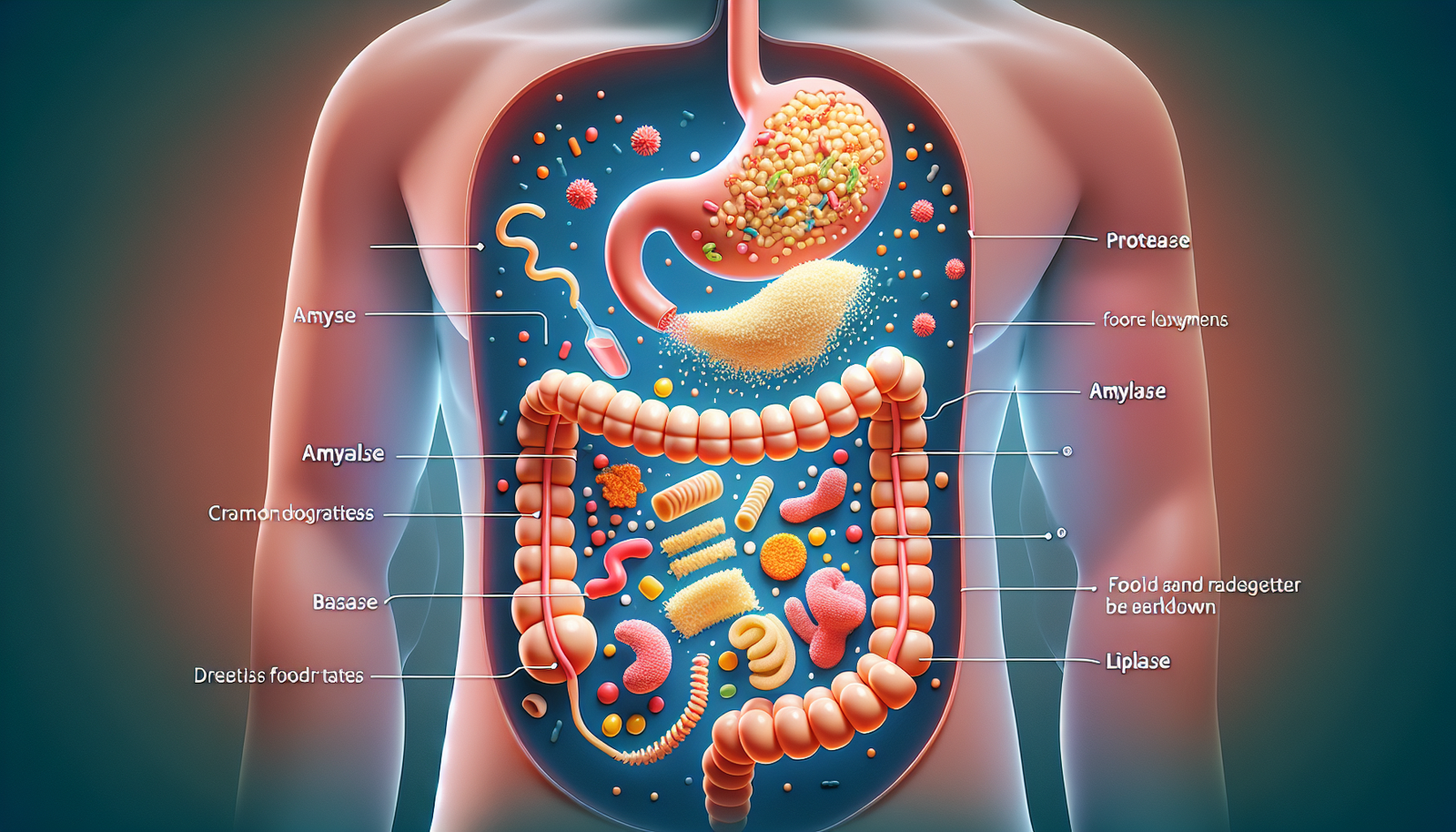How Stress Impacts Your Digestive Health
Understanding the Gut-Brain Connection
The relationship between stress and digestive health is intricate and multifaceted. At the core of this connection lies the gut-brain axis, a bidirectional communication system linking the central nervous system (CNS) with the gastrointestinal (GI) system. This relationship highlights that stress does not just affect mental health but can directly influence physiological processes, including digestion.
The Impact of Stress on Digestive Function
Stress induces a cascade of physiological responses within the body, particularly affecting the hormones and neurotransmitters associated with digestion. When one experiences stress, the body enters a "fight or flight" mode, which prioritizes immediate survival over metabolic processes. Here’s a breakdown of how this stress response disrupts various aspects of digestive health:
1. Altered Gut Motility
Under stress, the normal contractions of the intestines are disrupted. This can result in either decreased motility (slowing down digestion) or increased motility (speeding up digestion). This is evident in conditions such as:
-
Irritable Bowel Syndrome (IBS): Many individuals with IBS report their symptoms are worsened during stressful periods, leading to abdominal pain, bloating, diarrhea, or constipation.
- Gastroparesis: Increased levels of stress can slow stomach emptying, leading to symptoms such as nausea and early satiety.
2. Increased Acid Production
Stress stimulates the production of stomach acid, which can lead to symptoms such as heartburn and gastroesophageal reflux disease (GERD). The continuous overproduction of acid can irritate the lining of the stomach, resulting in:
-
Peptic Ulcers: Long-term exposure to high levels of stomach acid can lead to ulcer formation.
- Esophagitis: Inflammation of the esophagus due to backflow of acid can cause pain and difficulty in swallowing.
3. Changes in Gut Flora
Chronic stress can negatively affect the balance of gut microbiota, which plays a significant role in digestion and overall health. An imbalance in these bacteria can lead to dysbiosis, characterized by:
-
Reduced Diversity of Gut Microbiome: This can weaken the gut’s defense mechanisms, leading to infections and inflammation.
- Increased Pathogenic Bacteria: Elevated stress levels correlate with the growth of harmful bacteria, potentially contributing to conditions like inflammatory bowel disease (IBD).
Symptoms of Stress-Induced Digestive Issues
The symptoms stemming from stress-related digestive issues can vary widely, but they often include:
-
Abdominal Pain and Discomfort: Almost a universal complaint, stress can manifest as sharp or dull pains, cramping, or discomfort after meals.
-
Changes in Appetite: Some people may experience reduced appetite, while others might engage in emotional eating, increasing the risk of digestive distress.
-
Diarrhea or Constipation: Stress can lead to alternating episodes of diarrhea and constipation, a hallmark of IBS.
- Nausea: The stress-induced release of hormones can trigger a feeling of nausea or even vomiting in severe cases.
The Role of Hormones in Digestion
Stress triggers the release of various hormones, including cortisol, adrenaline, and norepinephrine. Each of these plays a specific role in affecting the digestive system:
-
Cortisol: This primary stress hormone can alter digestion by slowing down gut motility and causing an increase in appetite, particularly for high-sugar and high-fat foods.
- Adrenaline: As part of the fight-or-flight response, adrenaline can inhibit digestive processes, promoting blood flow away from the gut to muscles, thereby further hindering digestion.
Stress Management Techniques for Digestive Health
Effective management of stress is crucial for maintaining optimal digestive health. Here are several techniques that can be employed:
1. Mindfulness and Meditation
Practicing mindfulness and meditation can significantly lower stress levels. Techniques such as deep breathing, guided imagery, and body scanning can help activate the parasympathetic nervous system, promoting relaxation and improved digestive function.
2. Regular Exercise
Engaging in regular physical activity helps reduce stress levels and promotes gut health. Exercise can stimulate endorphin release, improve gut motility, and help maintain a healthy weight—further enhancing digestive function.
3. Balanced Nutrition
Eating a balanced diet rich in whole foods, lean proteins, healthy fats, and fiber can help stabilize blood sugar levels, reduce cravings, and nourish the gut microbiome. Additionally, probiotics found in yogurts, kefir, and fermented foods can help restore balance to the gut flora.
4. Social Support
Engaging with friends, family, or support groups can cushion the effects of stress. Social interactions can foster feelings of belonging and reduce feelings of anxiety.
5. Professional Help
In cases where stress is chronic and overwhelming, seeking help from a mental health professional can be beneficial. Therapy modalities such as cognitive-behavioral therapy (CBT) can equip individuals with tools to cope more effectively with stressors.
The Importance of Gut Health
Maintaining good digestive health is vital not only for digestion but also for overall health. The gut microbiome plays an essential role in nutrient absorption, immune system regulation, and the production of certain vitamins. Poor gut health can lead to systemic inflammation, obesity, and other chronic diseases.
Foods to Include for Digestive Health
To support digestive health, especially during stressful times, incorporate the following foods into your diet:
-
High-Fiber Foods: Fruits, vegetables, whole grains, and legumes can promote healthy digestion and prevent constipation.
-
Fermented Foods: Foods like kimchi, sauerkraut, and kefir introduce beneficial bacteria into the gut.
-
Omega-3 Fatty Acids: Found in fatty fish, flaxseed, and walnuts, omega-3s can help reduce inflammation in the gut.
- Hydrating Foods: Water-rich foods such as cucumbers, lettuce, and watermelon can help maintain hydration and aid digestion.
Foods to Avoid
Certain foods may exacerbate digestive problems, particularly during times of stress:
-
Processed Foods: High in sugars and unhealthy fats, processed foods can worsen inflammation and dysbiosis.
-
Caffeine: Excessive caffeine can increase anxiety levels and disrupt sleep, further complicating stress-related digestive issues.
- Spicy Foods: These can irritate the digestive tract, especially if stress is already contributing to discomfort.
Common Digestive Disorders Linked to Stress
-
Irritable Bowel Syndrome (IBS): A chronic condition characterized by abdominal pain, bloating, and altered bowel habits. Stress is a recognized trigger for symptom exacerbation.
-
Gastroesophageal Reflux Disease (GERD): Stress can exacerbate GERD symptoms by increasing stomach acid and promoting the relaxation of the lower esophageal sphincter.
-
Peptic Ulcers: Stress does not cause ulcers directly but can worsen symptoms and hinder healing by increasing acid production.
-
Inflammatory Bowel Disease (IBD): Conditions such as Crohn’s disease and ulcerative colitis may flare during periods of high stress.
- Functional Dyspepsia: This syndrome manifests as upper abdominal discomfort or bloating and can be significantly influenced by psychological factors.
Seeking Professional Guidance
If digestive symptoms persist despite stress management techniques, it is crucial to seek professional advice. Healthcare providers can conduct tests to rule out underlying conditions, provide dietary recommendations, or offer medications that may alleviate symptoms.
Final Thoughts
A comprehensive understanding of how stress impacts digestive health underscores the importance of addressing both psychological and physical aspects of health. By managing stress effectively and prioritizing digestive wellness, individuals can cultivate a healthier gut and, by extension, a better quality of life.








